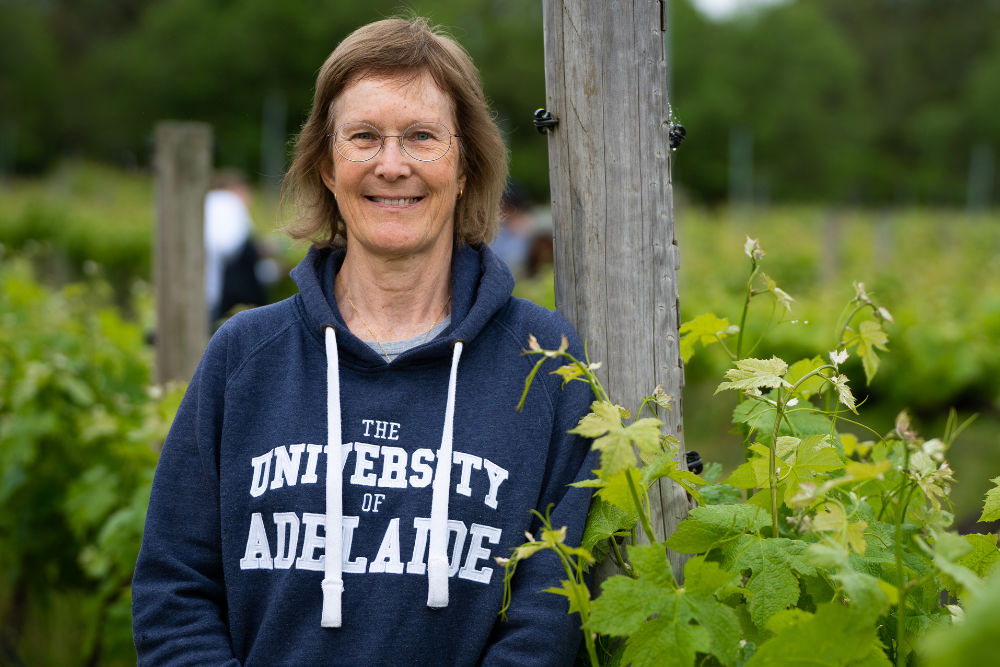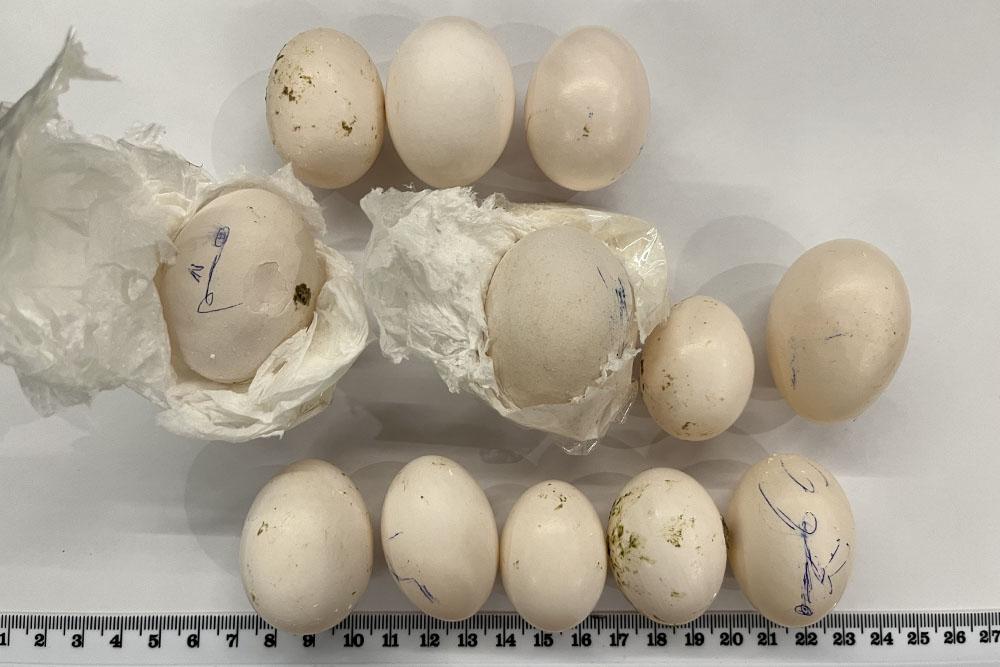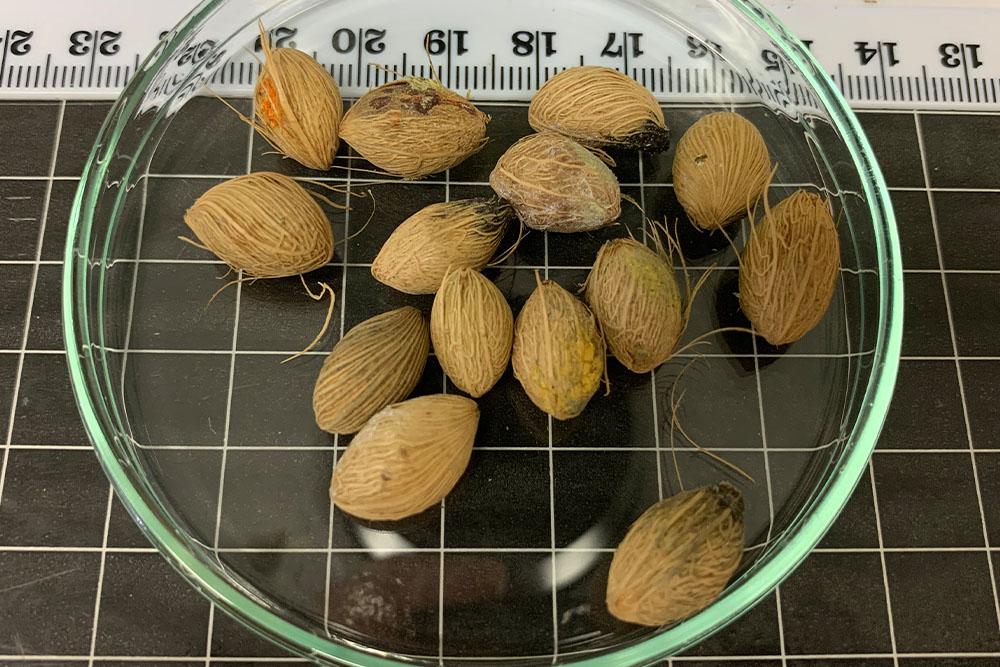Emerita Professor Eileen Scott
The University of Adelaide’s Emerita Professor Eileen Scott has received a 2022 Australian Biosecurity Award in the Education category.
With over 30 years of research and teaching experience, Dr Scott is a scholar and researcher with real-world impact.
Her contribution to Australian biosecurity includes industry-facing research, senior leadership roles, teaching and service to professional societies, including the Australasian Plant Pathology Society, Australasian Mycological Society, Australian Society of Viticulture and Oenology, and the former Cooperative Research Centres for National Plant Biosecurity and Viticulture.
A passionate advocate for plant biosecurity, Dr Scott has played a critical role in fostering a new generation of professionals through supervision, mentorship and training of higher-degree research (HDR) students, many of whom have followed a career in the field.
Dr Scott joined the University of Adelaide as a lecturer in 1987 and has taught undergraduate courses in microbiology, plant pathology and viticultural production. Between 2008 and 2012 she coordinated and taught the master’s course in classical diagnostic methods in plant health and biosecurity. Dr Scott became Professor in 2011 and served as both Deputy and Interim Head with the University of Adelaide’s School of Agriculture, Food and Wine.
She has provided tireless and influential service and leadership as an ambassador and champion of gender equity and diversity in STEM. She was officially recognised in this capacity by the Australian Women in Wine 2017 Awards, receiving the Workplace Champion of Change Award. She was awarded Fellow of the Australasian Plant Pathology Society in 2011 and has garnered accolades for her HDR supervision.
Her substantial knowledge and expertise in disciplines such as plant science, crop protection and plant pathology have provided research outputs with direct agricultural impact. Her research activity on grapevine diseases focused on botrytis bunch rot, powdery mildew and eutypa dieback. Dr Scott also helped develop techniques to understand how fungi infect plants and interact with other environmental factors. Examples include the diagnosis of eutypa dieback based on molecular and biochemical techniques, diagnostics for soil-borne diseases in pulses and DNA-based testing for pistachio bacterial dieback. Other research areas of interest include:
- interactions between plant pathogenic fungi and honeybees
- sustainable viticultural management techniques, crop research (on faba bean, almond, pistachio, canola and barley), diagnostics, surveillance monitoring and biological control.
Dr Scott’s collegiate and collaborative approach to research is illustrated by the breadth of her work with colleagues from many disciplines and organisations across the sector, and by how universally well-liked and respected she is.
Dr Scott was nominated by Jason Able, a colleague from The University of Adelaide.
Watch a video about Dr Scott’s work
Introduction
This is the accessible text transcript of a 2022 Australian Biosecurity Awards winner video featuring Emerita Professor Eileen Scott.
Transcript
My name is Eileen Scott, and my current position is Emerita Professor of Plant Pathology at the University of Adelaide. I joined the university in 1987, and I’ve taught plant pathology in numerous courses, especially in viticulture and agriculture in general.
I am absolutely thrilled and deeply humbled to be awarded the Australian Biosecurity Award for Education 2022. Biosecurity I know is really important to Australian agriculture, and it’s important that all of our students have a good understanding of biosecurity and the threats posed by exotic organisms that might come into the country.
And to be able to recognise all the exotic pathogens and diseases, they really need to know what the common ones are. And a lot of my time is spent teaching students what are the common diseases of the major crops grown in Australia. It’s really important that students can recognise common diseases of our major crops so that they can know if they are seeing something different, they can then seek an expert opinion, and that will allow authorities to identify any incursions of new pathogens.
My main research focus is on diagnosis, epidemiology and management of diseases. Particularly in horticulture, viticulture and pulse crops. In that research area, I’ve trained a large number of post graduate students, and it’s been a great privilege to work with all of these young researchers as they develop their research skills and go out into their future careers.
Many of the graduates in my lab are working in universities and state departments around the world, including here in South Australia, at the South Australian Research and Development Institute on Waite Campus. And it gave me a real buzz to be teaching this morning to a class of students in viticulture in the field, and to have 4 former and current students working with me to help teach those students in the skills that they need to recognise important diseases of vines, and also to be able to understand if they are seeing something different, then what they need to know about it and what to do about it, so that they can then support Australian biosecurity.
Biosecurity is everyone’s responsibility and I think that’s a great thing to take forward. This award is a great privilege, and I’m grateful to Jason Able, my colleague and interim head of school for nominating me, Carolyn Mitchell for helping me with the nomination, and of course the Australian Biosecurity Awards for the award. I’m deeply honoured. Thank you.




